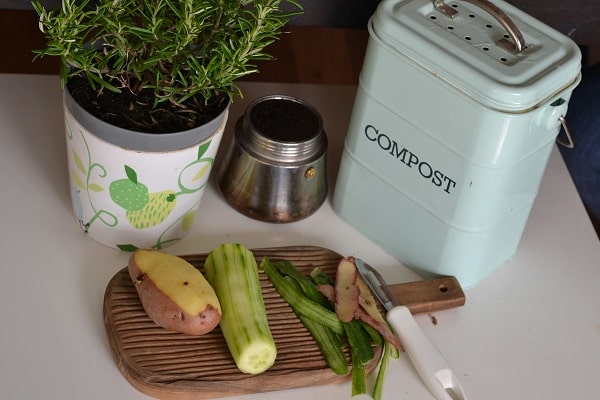Taking on a less-waste challenge is a transformative journey that encourages you to rethink your daily habits and move toward a more sustainable, eco-conscious lifestyle. By committing to reducing waste for a set period, you can make impactful changes while minimizing your ecological footprint.
In this guide, we’ll cover everything you need to know about the zero-waste challenge, how to prepare, and practical strategies to succeed. Get ready to make a positive environmental impact!
What Is the Less Waste Challenge?
1. Definition and Purpose
The zero waste challenge is a commitment to reducing waste as much as possible over a specific period. This involves analyzing your consumption habits, replacing disposable items with sustainable alternatives, and minimizing landfill waste.
Purpose of the Zero Waste Challenge:
- Waste Reduction: Reduce the amount of waste you produce daily.
- Reduce Waste: Cut down on daily waste production.
- Adopt Sustainable Habits: Develop long-term eco-friendly practices.
- Environmental Impact: Lower your carbon footprint and environmental impact.
2. Choosing the Right Challenge Duration
The duration of the zero-waste challenge can vary based on your goals. You can start with a shorter timeframe, such as 30 days, or extend the challenge for a deeper understanding of sustainable living.
Popular Challenge Durations:
- 7 Days: A quick introduction to waste reduction.
- 30 Days: A beginner-friendly challenge to build sustainable habits.
- 3 Months or More: For those committed to long-term zero-waste living.
3. Setting Realistic Goals for Success
To make your zero-waste challenge successful, it’s important to set achievable goals. Start by identifying specific targets and gradually incorporate sustainable habits into your daily routine.
Goal-Setting Tips:
- Focus on One Area at a Time: Start with plastic reduction, then move to food waste.
- Make Gradual Changes: Small, consistent steps lead to lasting habits.
- Track Your Progress: Monitor waste reduction and celebrate milestones.
How to Prepare for the Zero Waste Challenge
1. Assess Your Current Waste Habits
Before diving into the challenge, take a close look at your current waste habits. Conduct a waste audit to understand where you can make changes and which habits need adjustment.
Assessment Tips:
- Waste Audit: Track the types of waste you generate to identify key areas for improvement.
- Spot Patterns: Look for recurring sources of waste and plan alternatives.
2. Educate Yourself on Sustainable Living
Understanding the principles of zero-waste living will help you prepare for the challenge. Research and learn about sustainable alternatives to everyday items.
Education Tips:
- Research: Read blogs, articles, and watch videos about the zero-waste lifestyle.
- Connect: Join online zero-waste communities for support and inspiration.
3. Gather Zero-Waste Essentials
Having the right tools can make the challenge easier. Start by gathering reusable alternatives for common single-use items in your life.
Essential Less Waste Items:
- Reusable Shopping Bags: Say goodbye to plastic bags.
- Eco-Friendly Containers: Use glass or metal containers instead of plastic.
Practical Tips to Succeed in the Zero Waste Challenge
1. Replace Single-Use Items with Reusable Alternatives
A key aspect of the zero waste challenge is swapping disposable products for long-lasting alternatives.
Sustainable Swaps:
- Plastic Water Bottles → Reusable Stainless Steel Bottles
- Paper Towels → Cloth Towels
- Plastic Straws → Metal or Bamboo Straws
2. Practice Mindful Consumption
Before making a purchase, consider the environmental impact of the product. Choose quality items that last longer, reducing the need for frequent replacements.
Mindful Consumption Tips:
- Invest in Durability: Buy high-quality, durable items.
- Avoid Impulse Buys: Plan your purchases to avoid unnecessary items.
3. Apply the Three R’s: Reduce, Reuse, Recycle
The core principles of the zero-waste challenge are to reduce what you consume, reuse items whenever possible, and recycle responsibly.
Key Practices:
- Reduce: Cut back on items you don’t truly need.
- Reuse: Repurpose old items instead of throwing them away.
- Recycle: Recycle waste according to local guidelines.
4. Track Your Progress
Documenting your journey helps you stay accountable and motivated. Keep a record of the changes you make and celebrate milestones along the way.
Tracking Tips:
- Use a Journal: Write down your waste reduction efforts and reflect on your progress.
- Review Regularly: Set milestones and review your progress every few weeks.
Common Challenges and How to Overcome Them
1. Convenience vs. Sustainability
Convenience can often tempt you back to old habits. Plan ahead by preparing meals, bringing reusable containers, and carrying essentials like reusable straws and cutlery.
Solution: Always have reusable items with you to avoid single-use products.
2. Finding Sustainable Alternatives
It’s not always easy to find eco-friendly alternatives. Research different products and experiment with sustainable swaps to see what works best for you.
Solution: Do your homework on eco-friendly brands, or make DIY versions when possible.
3. Navigating Social Situations
Social gatherings can present non-zero-waste challenges. Communicate your goals with friends and family and find creative solutions.
Solution: Explain your zero-waste challenge to others and offer to bring your own reusable items.
FAQs About the Zero Waste Challenge
1. What are the benefits of the zero waste challenge?
You’ll reduce your environmental footprint, gain awareness of your consumption habits, and develop a sustainable mindset. Plus, you may even save money by avoiding unnecessary purchases!
2. How do I track my progress?
Maintain a journal, set milestones, and regularly evaluate your progress. You can also track specific waste categories to see which areas need improvement.
3. What if I struggle to stay waste-free?
Stay flexible. Challenges are part of the learning process. Seek out solutions, connect with like-minded people, and use each setback as a chance to grow.
Final Thoughts: Take on the Zero Waste Challenge Today!
The zero waste challenge is an exciting opportunity to reduce waste, embrace sustainability, and rethink consumption habits. By making small, consistent changes, you can minimize your environmental impact and inspire others to do the same.
Start your journey today – one reusable swap at a time!

